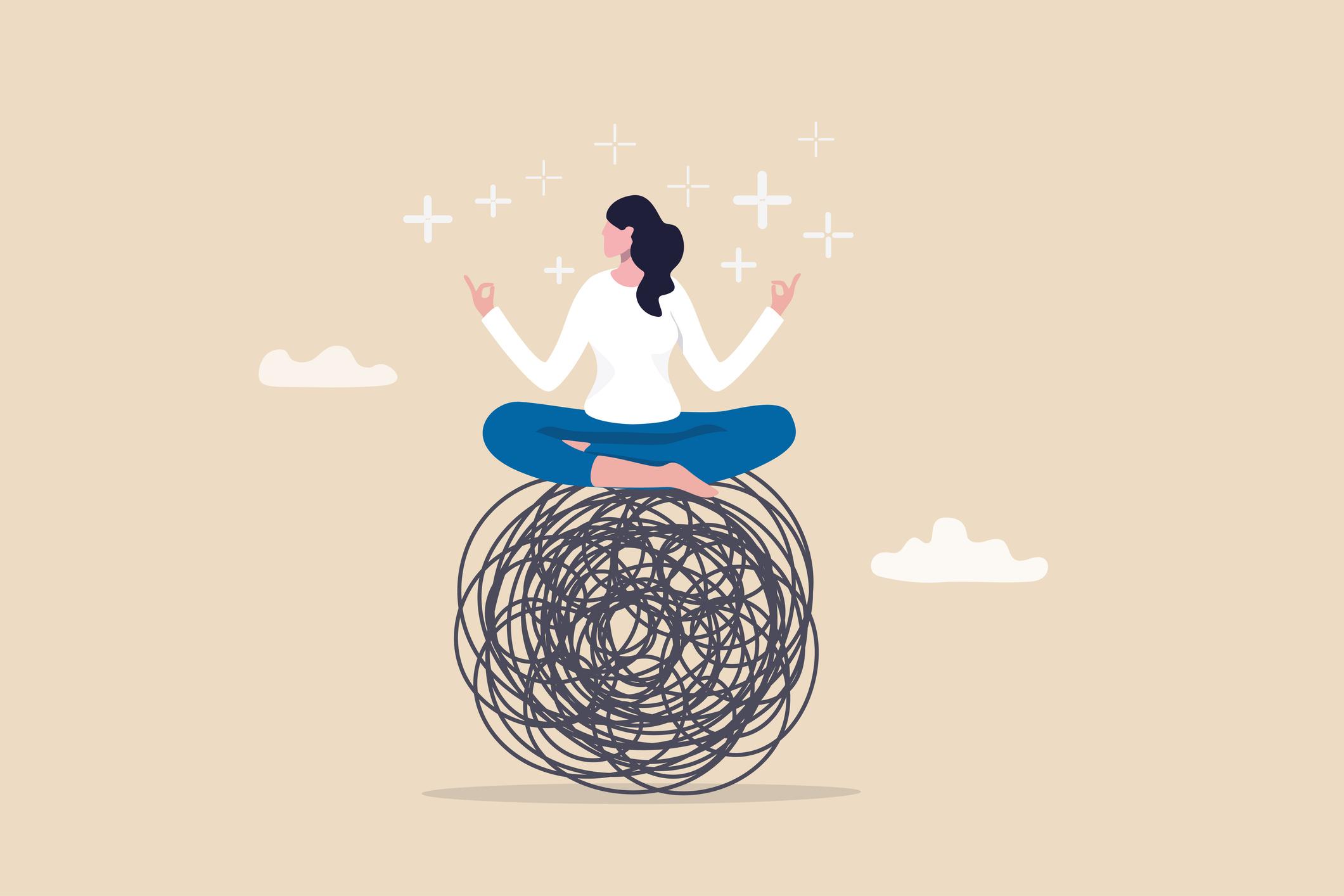Why Zero Stress Shouldn’t Be Your Goal

How many times have you heard that squashing stress is crucial for good health? Stress has become such a wellness buzzword that the quest to get rid of it can feel, well, stressful. But stress isn’t always the enemy. In fact, research suggests some is actually good for you, with potential benefits ranging from enhanced brain function to healthier aging.
In recent decades, some people have grown overly fearful of stress, concluding that it’s “the most horrible thing that can happen to you,” says Daniela Kaufer, a professor of integrative biology at the University of California, Berkeley. But “it’s a much more complex story,” she says. “Stress is a vital, required response.”
[time-brightcove not-tgx=”true”]
What is stress, anyway?
For one thing, it’s ubiquitous: research suggests people feel at least some stress on up to 90% of their days. But what’s actually going on in your body when you’re dealing with family drama or work deadlines?
In a high-stakes situation, your brain directs the adrenal glands to release hormones including adrenaline, causing physiological changes throughout the body that lead to the sweaty palms, fast breathing, and racing heart many people experience when they’re under pressure. The body also releases oxytocin, or the “bonding hormone,” during times of stress.
When stress festers for a long time, unaddressed, it’s linked to mental and physical health issues, even raising your risk for chronic conditions like heart disease. But in an immediate sense, a stress response is vital. It can help you power through a hard time or even escape physical danger. And, when acute stress is managed well, it can set you up for better health and well-being in the future.
How stress improves health
In toxicology, there’s a phenomenon known as “hormesis,” which describes substances that are beneficial at low doses but dangerous at high doses. Assaf Oshri, an associate professor of human development and family science at the University of Georgia, has applied that concept to his research on adversity, demonstrating that it works in largely the same way.
Chronic stress, as well as stress resulting from highly traumatic experiences, can be damaging—but moderate amounts of stress can benefit the body and mind, improving cognitive function and boosting resilience, according to Oshri’s work. In studies on rats, Kaufer has also demonstrated that acute stress may help the brain work better and prime animals for better reactions next time they encounter stressors.
“Resilience is a process. It’s not a trait,” Oshri says. “It emerges from your interactions with the environment.” If people aren’t exposed to any stress, he says, they may not build up that resilience muscle. If they’re exposed to too much—or to particularly traumatic forms, like abuse or discrimination—their well-being may suffer. But there seems to be a sweet spot in between, where stress fortifies psychological health and helps people bounce back from difficult situations. (Exactly where that sweet spot is may vary from person to person, Oshri says.)
Even physical health can benefit from some level of stress. Exercising is, at its core, a process of putting stress on the body so it can grow stronger. And some studies also show that short-term stress exposure boosts immune function.
How you deal with stress matters
It’s not just the amount of pressure you’re under that influences well-being; it’s also how you respond to it. Studies have shown that people who believe they can learn and grow from hard experiences fare better during challenging times, as opposed to those who view stressors as completely negative.
Still, it’s okay—even healthy—to be a little rattled by life’s curveballs. A 2024 study found that there’s a “Goldilocks zone” when it comes to emotional responses to stress. People who tend to have either extremely strong or extremely weak reactions to challenging situations are at increased risk of poor health and well-being, explains co-author Jonathan Rush, an assistant professor of psychology at the University of Victoria in Canada. People in the middle, who respond a little but not too much, tend to be healthiest, he says.
“One of the main purposes of having emotions is that they alert us to things in our environment” so we can deal with them appropriately, Rush says. Blocking out your emotions entirely is akin to ignoring a leaky faucet in your bathroom: “eventually,” Rush says, “you’re going to have a flood in your home.”
Mindfulness practices like yoga and meditation can help people cultivate a balance between going off and shutting down in the face of stress, Rush says. Mindfulness isn’t about ignoring negative feelings, but rather acknowledging them so you can manage them in healthier ways, he explains.
Leaning on loved ones during tough times is important too, Kaufer adds, since social support can serve as a buffer against the negative effects of stress and trauma. And if you can, she says, remind yourself that stress is a difficult but necessary part of life.
“You can’t choose exactly what happens to you, but you can choose your response in the moment,” Kaufer says. “Having the idea that you can overcome things, you can grow from things, whatever happens you will have a path forward”—that’s what matters most.
View original article
Contributor: Jamie Ducharme

